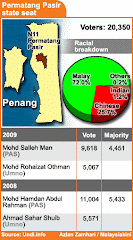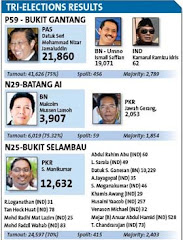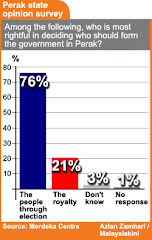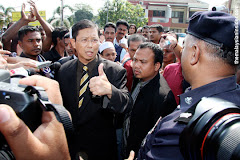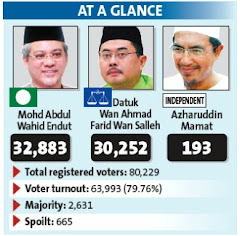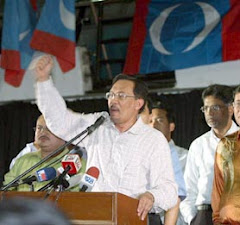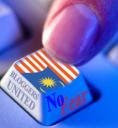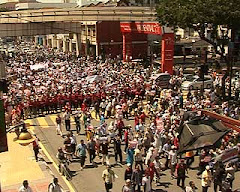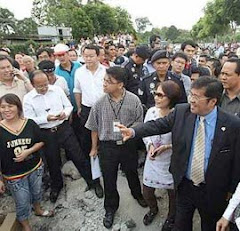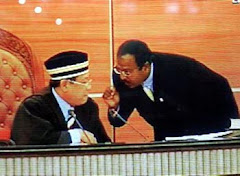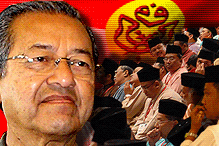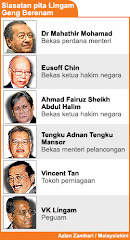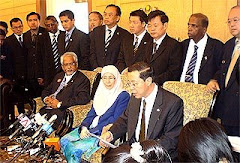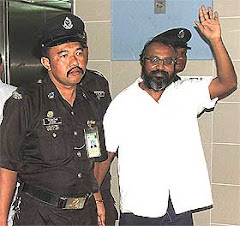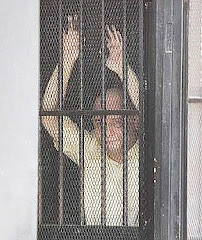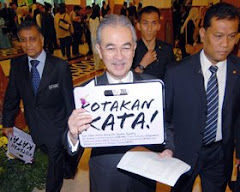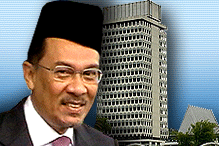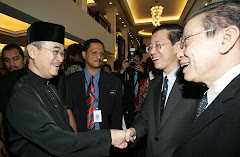 The Deoxyribonucleic Acid (DNA) Identification Bill was passed at the lower House and will be sent to senate for approval.
The Deoxyribonucleic Acid (DNA) Identification Bill was passed at the lower House and will be sent to senate for approval.The controversial legislation was passed today after two days of intense debate, mostly by opposition parliamentarians who did their best to delay bill's passage as they claim it would be a disaster for legal and human rights.
The bill specifically gives the police and authorities the power to obtain DNA samples from any suspects who have direct links to a crime.
The committee level debate saw amendments being made to nine sections of the bill, which includes the appointment of the head of the DNA Databank, the deputy head and other officers.
Deputy Home Minister Abu Seman Yusop told the House that the post of the head of Databank will no longer be helmed by a police official but by a public officer, who is sufficiently qualified and has the requisite experience in DNA science.
Prior to the amendments, the home minister had to appoint a police officer not below the rank of a Deputy Commissioner to head the databank.
Before the amendments were made, a police officer was allowed to use all means necessary for the purpose of taking or assisting the taking of a non-intimate DNA samples from a person.
Now, the amendments give the person the prerogative to refuse giving a non-intimate sample to the magistrate.
In the committee stage of the rounding up speech, Abu Seman also proposed to remove two sections of the bill.
They are Section 14, which holds a person liable to a fine not exceeding RM10,000 or a prison term not exceeding one year or both and Section 24, which states any information from the DNA Databank would be construed as conclusive proof in any court proceedings.
Anwar: This is a malicious campaign
Although the bill passed does not affect obtaining intimate samples such as blood and semen, the Magistrate's Court can issues an order to obtain non-intimate samples like saliva.
The bill, which is divided into six parts and contains 27 Sections, was tabled in August last year for a second reading.
The objective of the legislation is to enable the establishment of a Malaysian Forensics DNA Data Bank which is expected to store and analyse samples.
Speaking to reporters at the Parliament lobby, Opposition Leader Anwar Ibrahim expressed disappointment with the passing of the bill.
"Pakatan Rakyat is convinced that the way they are rushing through and refusing to acknowledge some very (important) criticisms is clearly meant to be used during the my trial," said Anwar.
The Permatang Pauh MP suspects the bill is an attempt to trap him in his ongoing sodomy case which is set for trial in July.
"As far as I am concerned it is not an issue... we have to fight them with or without the bill. It is a malicious campaign, nothing more," he added.
Subang PKR MP R Sivarasa added that to be fair to the government, some proposals made by the opposition was taken into account.
Sivarasa also said that the bill will definitely have an impact on the Anwar sodomy trial as the prosecution would be able to use samples that have been collected way back, when Anwar was held under the Internal Security Act in 1998.
"They can use it to legitimise the illegitimate samples," said Sivarasa
